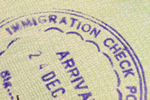Adjusting in advance to the expat experience in Dubai

Adjusting in advance to the expat experience in Dubai
Many new expat arrivals in Dubai are fully supported by their companies, making the transition as smooth as possible, but those arriving to find the job of their dreams will have a harder time. If you’re lucky enough to succeed, Dubai’s obsession with paperwork is your next hurdle. Extensive document requirements are necessary for the residence visa, many of which will need to have been attested in your home country. Starting with a valid passport with six months’ validity, the list includes all degree certificates and professional qualifications, driving licenses, marriage certificates and divorce decrees if applicable. If your family is coming with you, all birth certificates, school records, medical certificates, and other relevant required paperwork should be prepared well in advance.
It’s well known that Dubai is an expensive city, making financial planning for at least the first three months essential. Bank accounts are tough to set up without a residency permit, but there are ATMs on every street corner, representing a good number of international banks. It’s not absolutely to necessary to learn Arabic, as English really is the second language here but, at least for politeness’s sake, a few words can smooth pathways. Much is written about suitable clothing, but Dubai’s multi-cultural image makes modesty easier to get right. Swimwear on the beach is fine, but a degree of modesty when in the city helps, and conservative dress is mandatory in and around mosques and the historic areas of the city.
Alcohol is not strictly forbidden in Dubai, but buying the demon drink for consumption at home requires a license, even although it’s sold freely in bars, clubs and hotels. However, drunken behaviour is not tolerated, nor is consumption in public. Culture shock is normal for new arrivals, at least until they get used to and familiar with the culture and its religion. Awareness of Muslim festivals and holidays helps, especially concerning the customs around the two main festivals of Ramadan and Eid. Taking part can help with assimilation, and can also be fascinating and enjoyable.
Related Stories:
- Is Kuwaitization the unintended result of the oil price crash? - July 20, 2020
- Expats in Malaysia still banned from overseas travel - July 17, 2020
- HSBC Asia to cut back on internal expat relocations - July 16, 2020
- Tips on integrating for newly-arrived expats - July 15, 2020
Latest News:
- Tips on a trouble-free relocation as an expat overseas - July 20, 2020
- Expats find peace in the covid-19 refuge of Dahab town - July 20, 2020
- Is Kuwaitization the unintended result of the oil price crash? - July 20, 2020
- Expats unhappy abut changes to Korean points-based visa system - July 17, 2020
- Chiang Mai and Bangkok no longer bargain locations for expats - July 17, 2020
- Expats in Malaysia still banned from overseas travel - July 17, 2020
- Vietnam welcomes expats to its safe, affordable lifestyle - July 16, 2020
- Asian tiger economies reach out to expats in Hong Kong - July 16, 2020
- HSBC Asia to cut back on internal expat relocations - July 16, 2020
- Tips on integrating for newly-arrived expats - July 15, 2020


